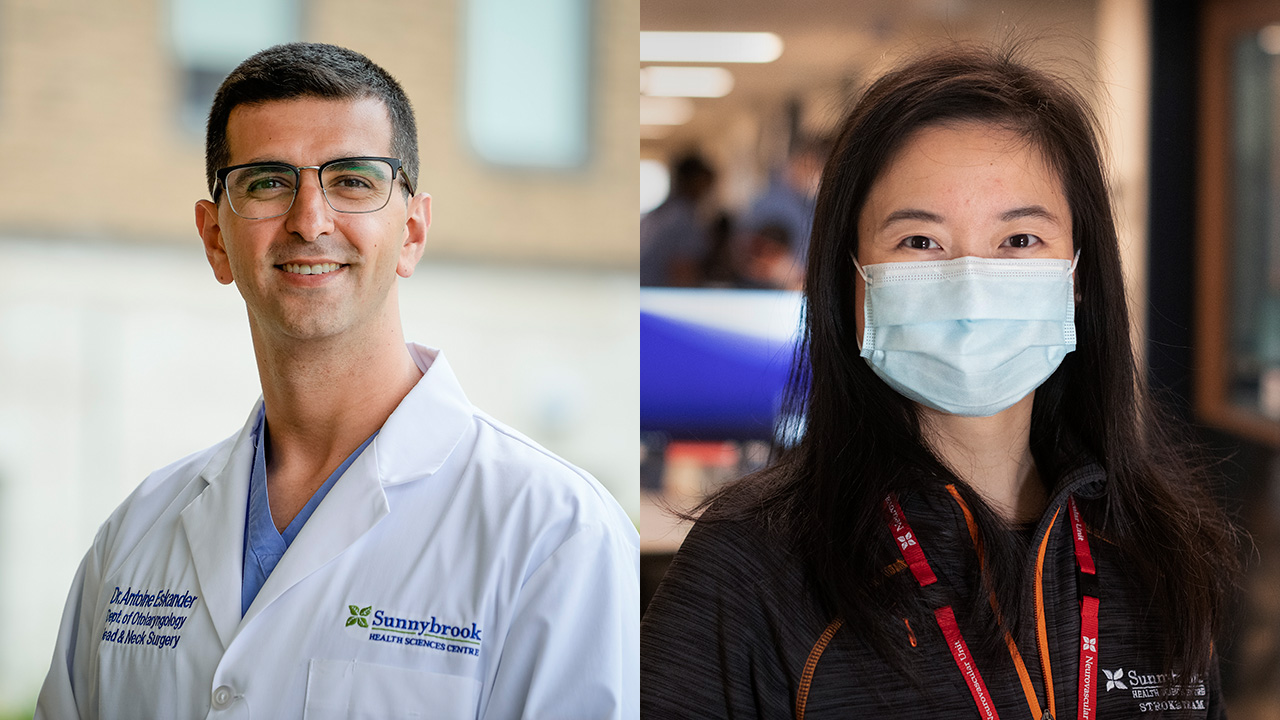Sunnybrook researchers awarded funding to address wider impacts of COVID-19
Dr. Antoine Eskander and Dr. Amy Yu, both researchers in Evaluative Clinical Sciences, have been awarded more than $700,000 in funding from the Canadian Institutes of Health Research (CIHR) to support their projects which address the wider impacts of the pandemic.
While research priorities addressing the direct effects of COVID-19 remain highly relevant, much remains unknown about the wider consequences of the pandemic. Both of the recently funded projects seek to examine the impact the pandemic and pandemic response has had on the health care system and Canadians.
Virtual Innovation for Stroke Investigation and Treatment during COVID-19 across Canada (VISIT-Canada)
Dr. Yu, who is also a stroke neurologist and associate scientist in the Hurvitz Brain Sciences Program, is co-leading a project to examine stroke care and outcomes since the beginning of the pandemic. “The pandemic has affected stroke care in many ways,” says Dr. Yu. “Infection with the virus is associated with an increased risk of stroke, pandemic restrictions may affect a person’s ability to renew or access medications, and although we’ve seen more widespread use of telemedicine and virtual care – it’s not clear whether care after stroke can be properly maintained through video or telephone calls.”
The study team will seek to answer these questions by comparing routinely collected administrative health data from three provinces before and after the pandemic. The researchers intend to use the results to help the health system prepare for any anticipated increase in stroke cases and plan for the optimal delivery of health care to ensure equitable stroke care and prevention.
The Tsunami after the Earthquake: COVID-19 Impact on Cancer Care and Outcomes
Dr. Antoine Eskander, who is also a head and neck surgical oncologist and associate scientist in the Odette Cancer Program, is co-leading a study to examine the pandemic’s significant impact on the cancer care system.
“Beyond short-term disruptions on care delivery, wider and long-term impacts, arising from cancer screening delays, prolonged wait times for treatment, and undermanaged mental illnesses, have not yet been thoroughly examined,” says Dr. Eskander. “It’s critical to explore these effects as they will lead to future economic and societal costs, extending the adverse effects of COVID-19 for many years to come.”
By analyzing pre-pandemic and pandemic data, the multidisciplinary team will provide recommendations on how to minimize the impact of the pandemic on cancer care and improve preparedness for future health emergencies.






